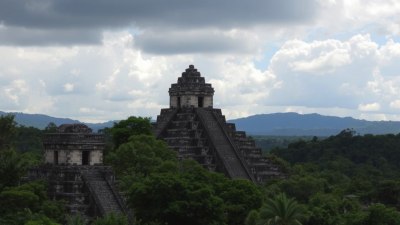Ruins and Reverence in Copán Ruinas, Honduras
Explore the majestic ruins and cultural significance of Copán Ruinas in Honduras.

Image created with Flux Schnell
Copán Ruinas, nestled in the lush highlands of western Honduras, is an archaeological marvel that offers a rich tapestry of history, culture, and reverence to the ancient Maya civilization. Known for its impressive Mayan ruins, the site is a UNESCO World Heritage site that attracts scholars and tourists alike, eager to explore its storied past and stunning architecture.
The history of Copán dates back to as far as 1000 BC, with its peak occurring around the 8th century AD. During this time, the city served as a significant political, cultural, and scientific center for the Maya civilization. The ruins can be traced back to several rulers, with the most notable being the ruler known as 18 Rabbit, who is credited with much of the artistic and architectural splendor that defines the site today.
One of the most compelling aspects of Copán Ruinas is its intricately carved stelae and altars, which provide insight into the society’s ceremonial life, mythology, and history. The stelae, towering stone monuments inscribed with hieroglyphics, depict royal figures and significant historical events. As visitors walk through the site, they can witness the sophistication of the Maya's writing system and the elaborate stories it tells about their rulers and gods.
Architectural Wonders
The architecture of Copán is nothing short of breathtaking. The site features a number of noteworthy structures, including temples, plazas, and the impressive ball court, which reflects the significance of the ancient Mesoamerican ballgame. The Temple of the Inscriptions, for instance, is another notable structure that captivates with its stepped pyramid and a series of galleries. It also contains one of the most famous doorways in the Mayan world, which famously led to the tomb of a ruler.
The architecture is characterized by its detailed stone carvings and remarkable alignment with celestial events, a testament to the Maya's advanced understanding of astronomy. These structures served not only as places of worship but also as symbols of power and prestige. The geometric patterns and anatomical precision found in these edifices reveal the Maya's exceptional skills in mathematics, art, and engineering.
Cultural Significance
Copán Ruinas is not merely a collection of stones; it holds deep cultural significance for the Maya and contemporary Indigenous communities. It serves as a reminder of the rich legacy of the Maya civilization, which flourished long before European contact. The reverence for these ruins extends beyond archaeological interest; they are intrinsically linked to the cultural identity of the Maya people, who regard their ancestors and their achievements with pride.
The community surrounding Copán Ruinas actively engages in preserving this heritage, hosting festivals and celebrations that honor ancient traditions and practices. These events often include traditional music, dance, and rituals that highlight the ongoing connection between the past and present. This continuity of culture illustrates the resilience of the Maya people, who strive to keep their customs alive in the face of modernization.
Ecotourism in the Region
With its rich biodiversity and stunning landscapes, the region surrounding Copán Ruinas is also a significant destination for ecotourism. The hills, forests, and rivers not only provide a picturesque backdrop for visitors but also support a variety of ecosystems that are home to unique wildlife. Birdwatching, hiking, and guided tours of the surrounding natural habitats offer an added dimension to the archaeological experience, allowing tourists to appreciate both human and ecological history.
Local efforts to promote sustainable tourism ensure that the impact on the environment is minimized while providing economic benefits to the community. Many local guides and businesses are committed to maintaining the integrity of the site while providing educational resources about its history and ecology. Ecotourism in this region not only enriches visitor experiences but also reinforces the importance of preserving both cultural and natural heritage.
Visiting Copán Ruinas
For those planning to visit Copán Ruinas, accessibility is relatively straightforward, with transportation options available from major cities in Honduras. The best time to visit is during the dry season, between November and April, when the weather is milder, making excursions more enjoyable. Visitors can explore the site at their own pace or take guided tours to gain deeper insights into the significance of the ruins.
While at Copán, visitors should allocate time to explore the nearby town of Copán Ruinas, which offers a vibrant atmosphere rich with local culture, artisan shops, and restaurants serving authentic Maya cuisine. Connecting with local artisans and learning about their crafts is another way to engage with the region's cultural heritage.
A Legacy of Reverence
In conclusion, Copán Ruinas stands as a monumental testament to ancient Maya civilization. The ruins offer a glimpse into a world of complex societies, extraordinary artistry, and profound beliefs. Today, they embody not only the remnants of the past but also the ongoing reverence that contemporary Maya and other visitors hold for such an important cultural heritage site. A visit to Copán Ruinas is more than an archaeological excursion; it’s a journey into the heart of a civilization that has left an indelible mark on human history.











